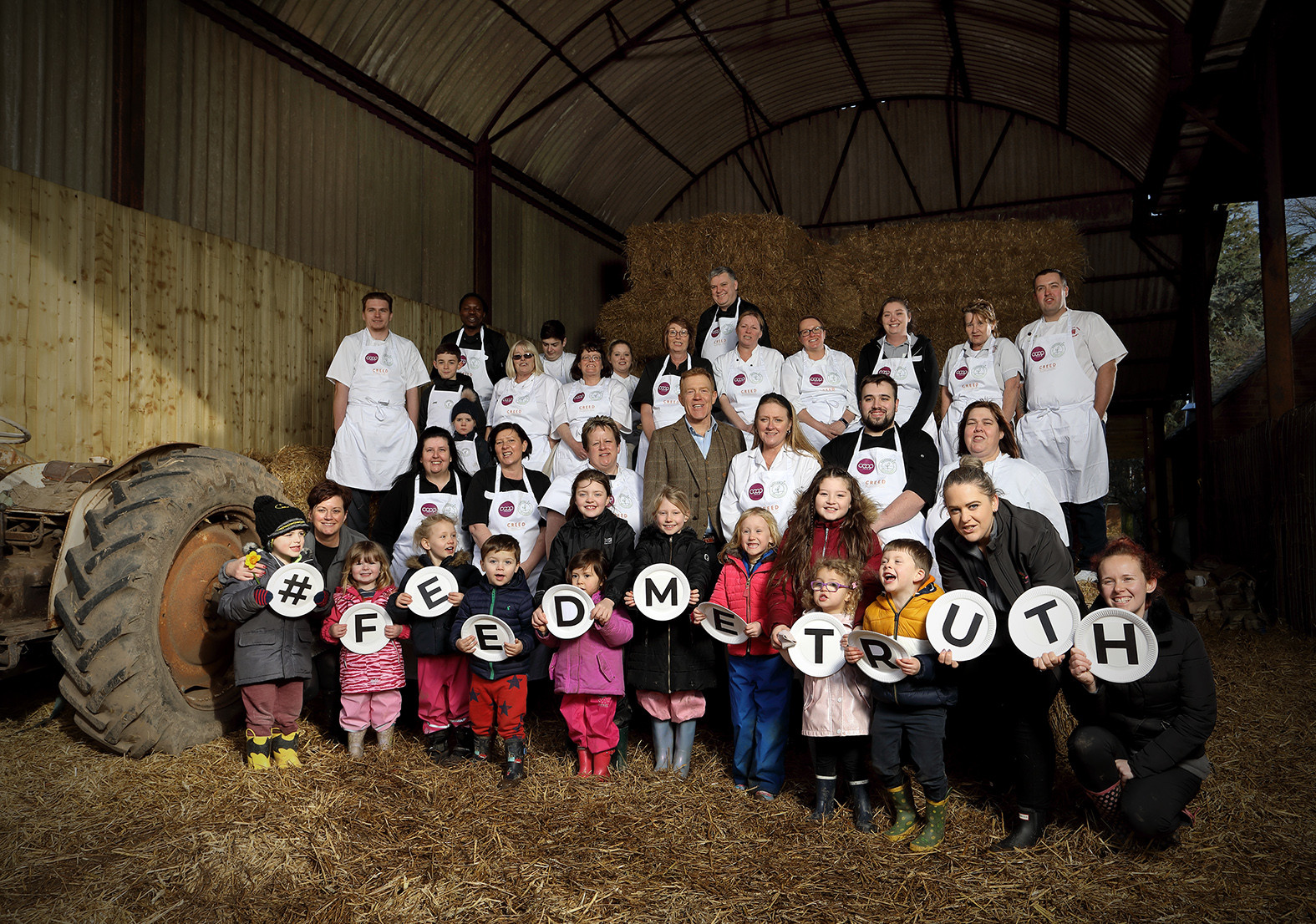About #feedmetruth
'It's time nursery and school children know where their food is from.'

Brutal Facts
Nearly a third (29%) of five to seven-year-olds think that:
- Cheese came from a plant, not an animal
- Tomatoes grow underground
- Fish fingers are made of chicken
One in four older primary school pupils (aged eight to 11 years) think the same as above.
Our aim
By connecting and engaging the supply chains behind all nursery and school food with what’s on the child’s plate, we hope to create a generational shift in how the nation engages with and values food provenance.
We hope every nursery and school in the country will commit to making their food supply chain transparent, using technology to deliver, into their dining rooms, the journey of every plate of food.
We would like all nurseries, schools and families to successfully work together to educate children and encourage them to make healthier and more mindful fact-based choices as they progress through their lives.
A transparent supply chain, from farm to plate, will educate not just the children but also parents, chefs and teachers.
Why is Adam Henson leading this?
"The appreciation and understanding of food starts with children simply knowing how and where the ingredients on their plate were produced, but they don’t. They have no idea. Every school dinner has a story to tell - a journey. It leaves a footprint. We need every child to explore it and be inspired and learn from it."
Who Is Happerley?
Happerley is a not for profit organisation, founded by farmers and gaining support from across the food industry to validate the provenance of food ingredients and empower consumers to know where their food is from. Find out more about us here
Happerley founder, farmer Matthew Rymer, explains: "The food industry remains one of the least transparent and we are not told the origins of most of the ingredients in our food. Children are particularly susceptible to buying into brands and clever marketing because they do not know or understand better.
"By working through the food chain to deliver the full story of the ingredients that make their school dinners, our hope is we can create a seismic change in understanding for the future, that impacts positively on their health and nutrition, the environment and sustainable food production."
Why are Co-op Childcare involved?
Co-op Childcare has committed to becoming the first national childcare provider to carry the Happerley accreditation, empowering all the communities they serve to know where the food they serve comes from. They have changed their food suppliers to enable transparency of their supply chain for all of their families, whilst also having expanded their early educational programme to connect children to food origins.
Chief Operating Officer of Co-op Childcare, Sally Bonnar said: "The role we play in early years for the health of future generations and connecting children to food origins, not only builds an understanding of food sources, but by teaching children where food comes from, also lays the foundations for making healthy eating choices and making healthy connections before entering school. Our ambition is to be known as a different kind of childcare provider, a successful values driven business that delivers great experiences and is not just reactive but proactive when it comes to delivering what matters to children, members, colleagues and communities."
How can you get involved?
Parents and public - show us your support
Please sign Adam's petition and follow Happerley and #feedmetruth on all your handles
State primary and secondary schools - Happerley will work with you for free.
Please contact us for an information pack.
Nursery and school and catering suppliers.
Please contact us to join this movement.
In addition:
- According to more than one in ten (13%) of eight to 11-year-olds pasta comes from an animal
- More than four in five primary age school children have said they would like to visit a farm to find out more about where their food comes from
- 27% of primary school children said they had never helped to cook a meal at home
- 63% of secondary school children use the internet to find out more about how food is produced
- 8% of secondary school children have never cooked from scratch
There is currently no formal professional support provided to teachers centrally;
- Schools and individual teachers take on the responsibility for interpreting and delivering the curriculum in their own way
- The links between physical activity, health and diet need to be highlighted
- Food and farming is a subject that people of all ages can engage with and can help them to make more informed choices about the food they eat